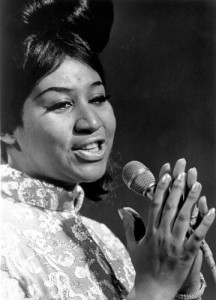Finding the Voice
Photo by Marcelo Henrique Zacarelli via Creative Commons The other day I had a conversation with a neighbor who was unaware that I’m a writer. On hearing this he became enthusiastic and told me he’d secretly wanted to write a novel for some time. He’s a graphic artist by trade and has written a number of technical manuals over the years. Writing fiction would be quite a challenge, and he was worried that he wouldn’t be up to it. I told him he needed to find the voice.
The other day I had a conversation with a neighbor who was unaware that I’m a writer. On hearing this he became enthusiastic and told me he’d secretly wanted to write a novel for some time. He’s a graphic artist by trade and has written a number of technical manuals over the years. Writing fiction would be quite a challenge, and he was worried that he wouldn’t be up to it. I told him he needed to find the voice.
“Find your voice,” he said. “Yes, I read that somewhere.”
“No,” I said, “find the voice.”
Every book has its own voice. Sure, ultimately it’s your voice, but I’m talking about the tone and character of a particular novel. And finding the voice is hard sometimes. I’ve been working on my zombie novel for almost a year now, and it wasn’t until recently that I actually found the narrator’s voice. This was particularly gratifying since the book is told in the first person.
So how does a new writer get started?
Begin Small
Write a short story. One of the best ways I know of is to take a powerful memory and tell it. It can be funny or sad or scary—whatever it is that gets you excited. Include details about the characters. Try to recall the dialogue and write it down the way you hear it in your head. Take Elmore Leonard’s advice and “leave out the part that readers tend to skip.”
I recall a writing class I took in school many years ago. We read our work aloud. Some of it was good, some not so good. One young woman wrote about a calf. Apparently she grew up on the farm, and the way she described that animal, the sounds it made, how its fur smelled and felt, well. It was magical. We could tell she loved the animal. We could feel it in her words. She had found the voice.
If you’d like a recommendation, read A Christmas Memory by Truman Capote. I mention it because this is the same guy who wrote In Cold Blood and Breakfast at Tiffany’s. Talk about voices!
Read Aloud
I do this constantly, and it irritates the hell out of my family. I sit in front of my computer and read aloud chapters of my book. And let me tell you, if it doesn’t sound good out loud, it’s going to stink on the page. This is especially true for dialogue, which I’ll cover next.
I’ve been thinking about recording myself and playing it back so I can concentrate fully on the words. I’ll let you know how it goes. That brings to mind an old Woody Allen joke. He purchases a tape recorder and, as he speaks into it, it says, “I know, I know.”
Watch Movies
What’s amazing to me about dialogue is this: as social creatures we spend a good portion of our lives talking and listening. Yet when it comes to writing dialogue for our characters, it often comes out stale and wooden. Why? My theory is that some writers have an ear for dialogue, and some don’t.
Take David Mamet. Go watch ‘Glengarry Glen Ross’ and tell me this guy doesn’t know dialogue. Then watch ‘Star Wars: Episode III – Revenge of the Sith’ and prepare to die from despair. Seriously, this would have worked much better as a silent movie. Just sayin’.
If you are one of those people with a tin ear, don’t give up! Like improving your golf swing, writing good dialogue is a skill that can be developed with practice. Watch movies, read screenplays and stage plays. Listen to the conversations going on around you—I mean really listen. Imagine what the words look like on paper.
Get Feedback
This is important. One of the best ways to do this is to join a writers group. They’re out there—especially on Facebook. Better yet, try to find one in your area that meets in person. I used to be a member of a screenwriting group. We engaged weekly in slashing and burning each other’s work. How do you think I got this thick skin? Trust me, though, this kind of criticism—if it’s well-intentioned—will make you a stronger writer. Scarred but stronger.
But What About My Novel?
Start making notes. If you have a story with strong characters and themes, and you are convinced it will make a book, there’s no reason why you shouldn’t begin sketching it out. But craft is everything. And you really want to be in shape before attempting a marathon.
Here are some books that might help:
On Writing by Stephen King (if you read nothing else, read this)
Write Great Fiction – Plot & Structure by James Scott Bell
Techniques of the Selling Writer by Dwight V. Swain
Save the Cat! by Blake Snyder (this is about screenwriting but you will learn a ton)
These are just a few ideas. Which things would you recommend to someone who is just starting out? I look forward to your comments.
Related articles
How to find your authentic writing voice (lessonsinselfpublishing.com)
Write great dialogue scenes in 7 steps (nailyournovel.wordpress.com)
Writing With Writers (mridenour.wordpress.com)

Link to this post!

Glass Highway
- Steven Ramirez's profile
- 178 followers



